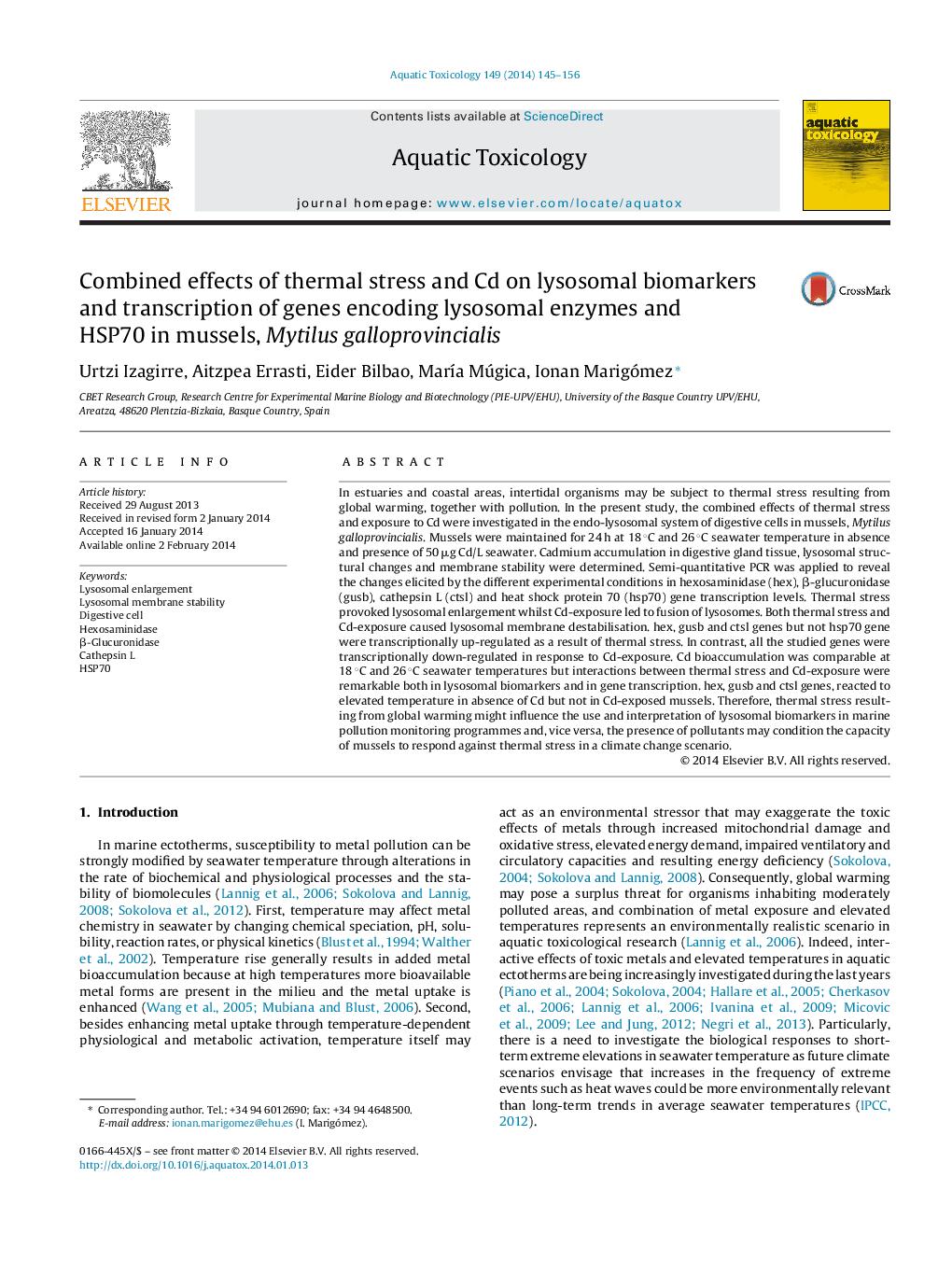| کد مقاله | کد نشریه | سال انتشار | مقاله انگلیسی | نسخه تمام متن |
|---|---|---|---|---|
| 6382473 | 1625956 | 2014 | 12 صفحه PDF | دانلود رایگان |

- Thermal stress and Cd caused lysosomal enlargement and membrane destabilisation.
- hex, gusb and ctsl but not hsp70 were up-regulated at elevated temperature but down-regulated by Cd.
- Thermal stress influenced lysosomal responses to Cd exposure.
- The presence of Cd jeopardised responsiveness against thermal stress.
In estuaries and coastal areas, intertidal organisms may be subject to thermal stress resulting from global warming, together with pollution. In the present study, the combined effects of thermal stress and exposure to Cd were investigated in the endo-lysosomal system of digestive cells in mussels, Mytilus galloprovincialis. Mussels were maintained for 24 h at 18 °C and 26 °C seawater temperature in absence and presence of 50 μg Cd/L seawater. Cadmium accumulation in digestive gland tissue, lysosomal structural changes and membrane stability were determined. Semi-quantitative PCR was applied to reveal the changes elicited by the different experimental conditions in hexosaminidase (hex), β-glucuronidase (gusb), cathepsin L (ctsl) and heat shock protein 70 (hsp70) gene transcription levels. Thermal stress provoked lysosomal enlargement whilst Cd-exposure led to fusion of lysosomes. Both thermal stress and Cd-exposure caused lysosomal membrane destabilisation. hex, gusb and ctsl genes but not hsp70 gene were transcriptionally up-regulated as a result of thermal stress. In contrast, all the studied genes were transcriptionally down-regulated in response to Cd-exposure. Cd bioaccumulation was comparable at 18 °C and 26 °C seawater temperatures but interactions between thermal stress and Cd-exposure were remarkable both in lysosomal biomarkers and in gene transcription. hex, gusb and ctsl genes, reacted to elevated temperature in absence of Cd but not in Cd-exposed mussels. Therefore, thermal stress resulting from global warming might influence the use and interpretation of lysosomal biomarkers in marine pollution monitoring programmes and, vice versa, the presence of pollutants may condition the capacity of mussels to respond against thermal stress in a climate change scenario.
Journal: Aquatic Toxicology - Volume 149, April 2014, Pages 145-156